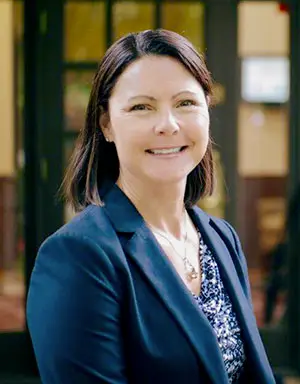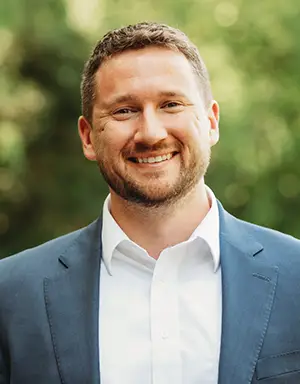Neil Craft:
Hi my name is Neil Craft, and I am proud to be a part of the team here at James investment on today’s Market Clarity episode I’m joined by Clare Thielen. Clare is a Certified Retirement Planning Counselor. She’s a graduate of Wright State University and has over 30 years’ experience in the industry.
Clare Thielen:
Clare, how are you today? I am doing very well Neil, thank you. And it is my pleasure to be here.
Neil Craft:
Excellent. Well, I’m excited to host you here and get into our discussion. Our conversation today is centered around retirement planning and, and obviously we wanted to bring in our, our resident expert from James here, to, to get into this conversation today.
Clare, I think for a lot of our listeners out there, retirement planning can be a little bit overwhelming to think about whether you’re an individual. If you’re married, if you have children, what have you? I think just the conversation can be a little bit overwhelming. How do you like to start that discussion with your clients?
Clare Thielen:
You are absolutely spot on Neil. What you just said. Retirement planning is very overwhelming and the reason is because there are a lot of moving parts to retirement planning and those moving parts change over time. So it’s really important to have a good blueprint to get started and when to start to talk about this blueprint for retirement with clients.
One of the things that we realized quickly is that there were some very common mistakes and common considerations that you need to think about in order to get that plan in place and one mistake that we see that’s a very common mistake is not getting the right information together for the plan. Part of this includes really understanding your budget.
How much money do you spend and how will that change over time? Once you retire? One of the things that we identify is that when we sit down and look at how much money do we spend, it may seem straightforward to say, we can look at a credit card statement or understand cashflow, but a lot of times we have misconceptions about that.
So we actually do sit down with our clients and help them put together a budget and then once you have identified those core expenses, you have to also take a look at how might those change once you do retire. So maybe you’re not driving to work or spending as much money on clothing. However, maybe you do want to spend more time traveling or even giving money to charity.
So once you do identify those core expenses, you could begin to really plan for those ad-ons that you hope for and that would include things such as traveling or any other financial goals that you might have.
Neil Craft:
Sure, sure. You know, when you were, when you were talking there about getting things right from the beginning and, and calling it a blueprint, I came across a quote by, by Neil Armstrong and he said, if you’re an inch off on landing, no big deal.
But if you’re an inch off on takeoff, you’re going to miss the moon by a million miles. And I think that that just kinda came to mind there when you were talking that getting things right at the beginning is really important, you know, for somebody who still isn’t quite sure, you know, what to ask, to help uncover that right information.
Clare Thielen:
Absolutely. That is a great quote. Because that really is what could happen. If you don’t ask the right questions, you don’t get the right information. You could be off by quite a bit. And so when you sit down with a professional that understands retirement planning, you can really dive deeper into those questions because as we just talked about, expenses can change over time.
But so does your income. And so another common mistake that we see with these plans is miscalculating that income. The first question would be, do you, you have a pension or will you rely on social security and when you looking at pension and social security, we understand that those numbers will change over time.
So you really want to be able to take that into account. You also want to look at your investments and other assets because many times we’ll save money. We’ll invest. We’ll have hard assets that we accumulate over time, but then, maybe we don’t really want to use those to fund our retirement. Maybe we want to pass those onto somebody.
So we really need to look at those. Look at how much you have in those different investment vehicles or hard assets, and then identify what you would be willing to use over time. If you needed to fund that retirement. Another question is, are you interested in working part time? Because some individuals will say, I want to retire full-time but I don’t really want to retire permanently so that can help with some of those income needs as well, or just even getting out of the house; and others might say, I just don’t want to work at all. So you really do need to calculate that in before you can start analyzing your needs, your wants and your wishes. And then another common mistake on that is when you look at social security is sometimes a mistake could be collecting that social security too soon or not soon enough, and the reason is because delaying your benefits can have an effect on how much you receive from social security over your lifetime and also can affect the benefits of your surviving spouse. So when we decide the best time to take social security, that’s really a decision that a client makes after they talk to social security, they get an idea of what their benefits are.
And then you can take into account things such as longevity. If you’re in good health, maybe you want to delay those benefits. Well, somebody with health concerns or immediate income needs might say, I need to go ahead and just start taking that social security sooner. So if you are relying on social security as your primary source of income, your decision on when you begin taking those benefits will be quite different from somebody who will rely on other income first, and so those are just some of the key points that we would need to talk about. Of course there were a lot of other factors to consider and we really do have that ability to sit down and help clients identify and define those situations.
Neil Craft:
Definitely. Yeah. Well, I mean, I appreciate those thoughts, Clare. I know our listeners do as well. It seems like just talking through these things with, a professional who knows the right questions to ask makes that a lot less overwhelming. When it comes to the blueprint, that you mentioned, we talked about some common mistakes. You also mentioned some considerations. Do you want to touch on those for us?
Clare Thielen:
Sure. Absolutely. I touched a bit on investments and other hard assets, and sometimes we meet with a client, a client will say, or carve out this because I really want to hang on to it and maybe pass this onto my children or other heirs or leave it as a bequest. But in other cases, a client may come and they don’t have a pension and they do need to really rely on their investments for retirement, but either way, regardless of what direction the client goes, it’s really important to review your investments. You need to ask questions such as, do you have a 401k or other assets and to look at how those are invested currently, because as you approach retirement, the investments you have will likely need to change; and so that’s one of the key benefits that we here at James investment have, is we have that long-term experience and looking at investments, we can look at your account and we can even help you put together a portfolio that would help you reach these goals.
Another consideration that we like to talk about, Neil is that of legacy. And I briefly mentioned it earlier on in our conversation. Many times there are charities or causes that clients support throughout their lives. And as they get closer to retirement and maybe their income changes, they really want to make sure that they can continue to do that. So that is part of the planning process that we would sit down and, and make sure for the client that hopefully they would be able to continue. But also. If they would like to leave a bequest. So these are both really important parts of that whole planning process.
Neil Craft:
Interesting. I mean, I’m sure that, that you guys, you know, that you see that, but also I know there’s gotta be at least some listeners out there that don’t think about legacy right away. When they hear retirement planning, they, they might think do I have enough money to retire? At least that’s kind of where my mind goes. When this conversation comes up, Clare, what type of concerns or, or common problems do you hear from clients?
Clare Thielen:
Well, one, one concern that we hear quite often is running out of money because we don’t really know for sure, our longevity. So you really want to kind of plan out maybe a little bit further just to make sure that you don’t run out of money. That’s one key point, but another one is losing money due to investments and, and again, that’s one, one area that we think we really can help our clients to sit down and look at in terms of putting together a portfolio that can help them with this retirement goal, but also focus more on protecting their money as they do retire.
Some other common concerns that we didn’t mention in this is this is a key to having that plan, that that hopefully will work out for the clients over time and that’s not spending enough time doing the things that you really enjoy. If somebody doesn’t want to work part time and they really want to spend time doing other things.
And they’re forced to kind of go in and, and work part-time that may not be their ideal goal. So it’s really important to, to look at that overall plan and also to consider healthcare, because that will be a very big part of this plan overall. So to sit down accurately, look at how much that will take up of the budget over time.
A key part of all of this Neil is asking clients what they are afraid of, and that’s really a good place for anyone to start because it really helps to identify those priorities and really what’s important to that person or to that couple.
Neil Craft:
Absolutely. Clare, I appreciate your visualization, with the blueprint. I think that that tangible image, is, a great way for our listeners to connect to the idea and, and to not be intimidated or as overwhelmed as they once were by retirement planning, so thank you.
Clare Thielen:
Absolutely. it’s been my pleasure and another point that I will add in closing is that once all of this information has been gathered together, the questions had been asked, it’s important to review that blueprint on an ongoing basis because when it comes to retirement planning, we know there’s not a one size fits all. There are many variables to consider and once your retirement begins, those variables can, and often do change.
Neil Craft:
Clare. Thanks for being with us today. I appreciate the time.
Clare Thielen:
Absolutely. Neil. It has been my pleasure.
Neil Craft:
And remember at James Investment, we can put together a no obligation financial review to help you come up with your retirement blueprint. Call us at (937) 426-7640 or visit us on the web at www.jamesinvestment.com to get started today.



